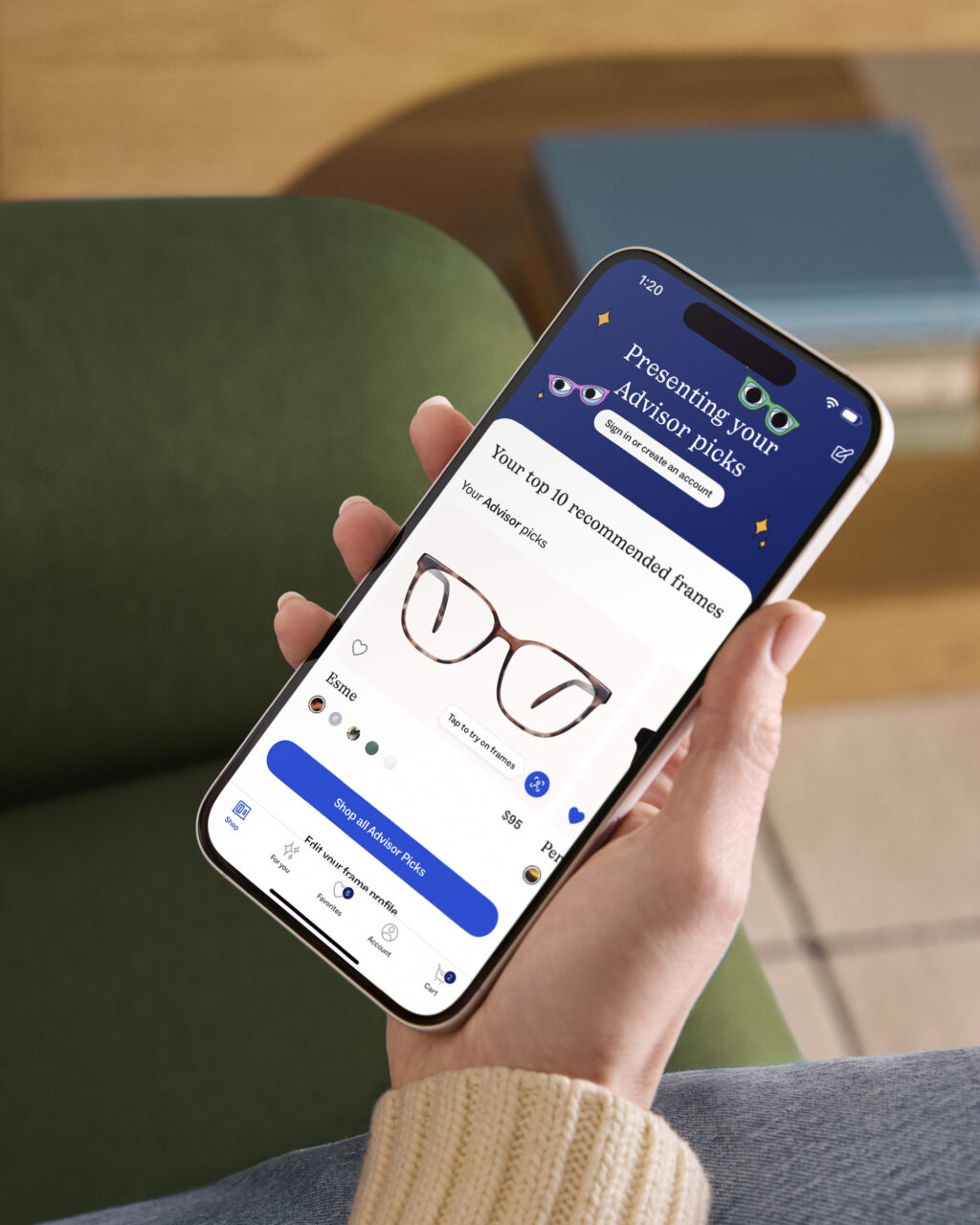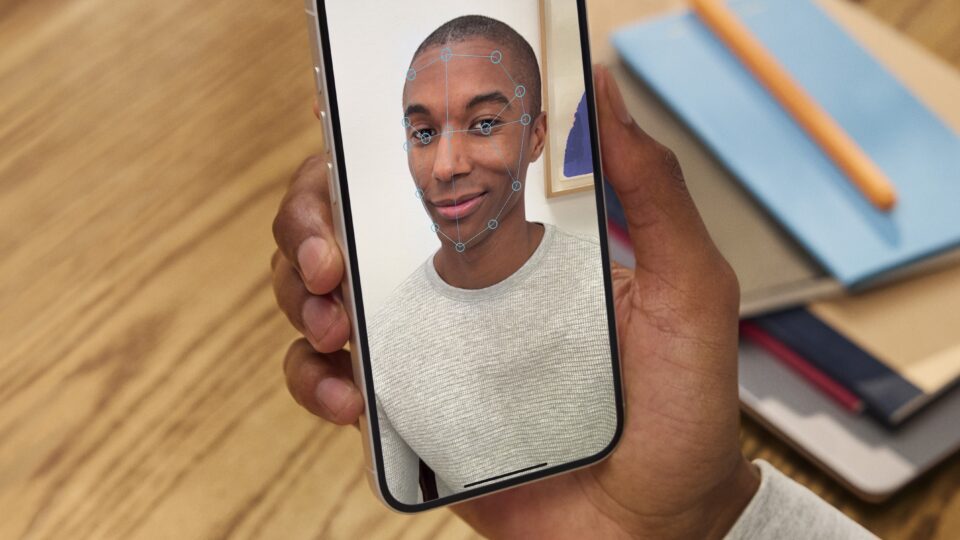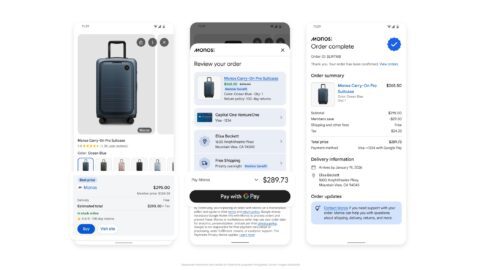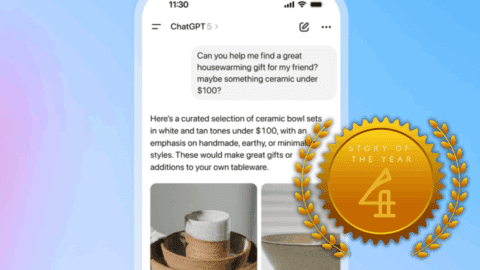DTC brand Warby Parker has made two big moves in a bid to continue disrupting the eyewear market. The company is teaming up with Google to develop smart glasses that will compete with Meta’s Ray-Bans, and it has launched a new AI tool that replicates the in-store experience for customers at home.
New AI Advisor Tool Helps Customers Find the Perfect Frame Online
The new online tool, Warby Parker Advisor, offers personalized guidance to help online customers find frames that fit both their face and their style.

Built on Warby Parker’s proprietary AI technology in partnership with digital creative agency Kettle, the tool aims to bring the brand’s friendly in-store experience to digital customers via their phones. Following a quick face scan in the Warby Parker iOS app, customers will receive tailored recommendations based on facial dimensions like shape, width, nose bridge and individual style preferences. Advisor is now available to all iOS users.
“[Advisor is] a completely new way to shop for glasses — and makes the experience convenient, personalized and fun,” said Dave Gilboa, Co-Founder and Co-CEO of Warby Parker, in a statement. “The early feedback and engagement has been overwhelmingly positive, and we can’t wait for more shoppers to experience Advisor for themselves.”
Advisor is the latest in a number of tech-enabled offerings from the eyewear brand, including its signature home try-on program, a virtual vision test and virtual try-on. The company also has been doubling down on its physical store footprint with dozens of new standalone stores opened in 2024, as well as shop-in-shops coming to Target this year.
Google Taps Warby Parker to Take on Meta and Ray-Ban
Warby Parker also has announced a partnership with Google to develop AI-powered glasses intended for all-day wear. The partnership will combine Warby Parker’s signature approach to eyewear design with Google’s technology ecosystem to “bring the next generation of computing” to eyewear.
“Since our launch we’ve set out to transform the optical industry by leveraging pioneering technology to design better products and experiences — and over the past 15 years, we’ve done just that,” said Dave Gilboa, Co-founder and Co-CEO of Warby Parker, in a statement. “Looking ahead, we believe multimodal AI is perfectly suited for glasses, enabling real-time context and intelligence to augment a wearer’s surroundings as they move through the world.”
The partners intend to launch a series of products over time, with the first pair of smart glasses planned for “after 2025,” so potentially in 2026. The first offering will incorporate multimodal AI functionality with both prescription and non-prescription lenses.
“The eyewear we wear and the technology we use are core parts of our identity and our daily experience,” said Neil Blumenthal, Co-founder and Co-CEO of Warby Parker, in a statement. “Our teams share a commitment to leverage design, utility and innovation to build products to help customers in every aspect of life.”
As part of the collaboration, Google has committed up to $75 million for Warby Parker’s product development and commercialization costs. Google also has committed to investing up to an additional $75 million in Warby Parker, at Warby Parker’s option and subject to the company reaching certain collaboration milestones.
“Warby Parker’s optical expertise, omnichannel approach and history of leveraging technology to create beautifully designed products and exceptional customer experiences make them the perfect partner to co-create and launch this next generation of smart glasses on the AndroidXR platform,” shared Shahram Izadi, General Manager and VP of XR at Google, in a statement.
The new partnership will pit Warby Parker and Google against Meta and its partnership with Ray-Ban. The growing popularity of that product must be particularly irritating to Google, which was the first to market with its Google Glasses back in 2013. However, that product eventually flopped.
Meta has been doubling down on the popularity of its AI-enabled Ray-Bans with physical stores that allow customers to try them out IRL, and Business Insider reports that Meta’s ultimate goal is to operate an Apple-sized chain of stores that showcase its tech devices, including also the Meta Quest and Meta Portal. The company currently operates just one store in Burlingame, Calif.













